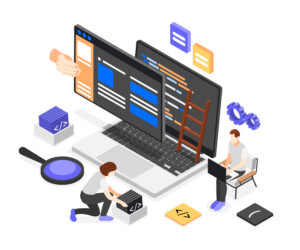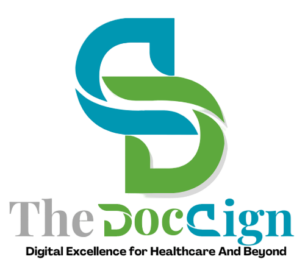Boosting Performance: Advanced AI Utilization in Targeted Healthcare Marketing

Healthcare marketing is changing as a result of artificial intelligence (AI), which makes it possible to implement more individualized, effective, and data-driven tactics. AI integration in Healthcare marketing has the potential to greatly increase Campaign performance, Raise patient engagement, and Maximize resource allocation. Here’s a detailed use of AI in Healthcare marketing:
Personalization and Targeting
- Patient Segmentation: AI algorithms can analyze vast amounts of patient data (demographics, behavior, medical history) to segment audiences into more precise groups. This allows marketers to create highly personalized campaigns tailored to specific needs, preferences, and conditions.
- Dynamic Content Creation: AI tools like natural language processing (NLP) can generate personalized content for different patient segments, ensuring that the messaging resonates with individual users. For instance, AI can tailor email content based on a patient’s recent interactions or health status.
Predictive Analytics
- Patient Journey Mapping: AI can predict patient behavior and preferences by analyzing historical data and current trends. This helps marketers understand the patient journey, identify potential touchpoints, and anticipate needs, leading to more effective campaign planning.
- Outcome Prediction: AI can forecast the likely outcomes of marketing initiatives by analyzing past campaign data. Marketers can use these insights to optimize strategies, allocate budgets more effectively, and focus on high-impact areas.
Chatbots and Virtual Assistants
- 24/7 Patient Support: AI-driven Chatbots can provide instant, personalized responses to patient inquiries, offering support at any time of the day. This improves patient satisfaction and engagement while reducing the workload on human customer service teams.
- Appointment Scheduling: AI-powered virtual assistants can manage appointment bookings, send reminders, and follow up with patients, ensuring a seamless experience that enhances patient retention.
Content Optimization and Generation
- AI-Driven Content Creation: Tools like GPT-based models can generate high-quality, Patient-centric content for blogs, social media, and other channels. This content can be optimized for SEO and tailored to address specific patient concerns, improving visibility and engagement.
- A/B Testing Automation: AI can automate the A/B testing process, rapidly analyzing the performance of different content variations and determining the most effective approach. This speeds up the optimization process and improves the ROI of content marketing efforts.
Voice Search Optimization
- Voice-Activated Search: With the rise of voice search, particularly in Healthcare where patients often ask questions about symptoms or treatments, AI helps optimize content for voice queries. This involves adjusting SEO strategies to focus on conversational phrases and questions.
- Voice Assistants in Marketing: AI-powered voice assistants can deliver personalized health tips, reminders, and information to patients, creating a new channel for engagement and education.
AI in Advertising
- Programmatic Advertising: AI enables real-time bidding and programmatic ad buying, allowing Healthcaremarketers to target the right audience at the right time with precision. This technology optimizes ad spend by ensuring ads are only shown to users who are likely to convert.
- Ad Personalization: AI can customize ads based on user behavior, browsing history, and demographic data, leading to higher click-through rates and better engagement.
Data-Driven Decision Making
- Advanced Analytics: AI tools can process and analyze vast amounts of data from multiple sources (social media, CRM, EHR systems) to provide actionable insights. This helps marketers make informed decisions, refine strategies, and measure campaign effectiveness more accurately.
- Patient Sentiment Analysis: AI can analyze patient feedback from surveys, reviews, and social media to gauge sentiment and identify areas for improvement in both services and marketing efforts.
Ethical Considerations and Compliance
- Data Privacy Management: AI can assist in ensuring compliance with healthcare regulations such as HIPAA by managing patient data securely and automating privacy-related tasks. This is crucial for maintaining trust and avoiding legal issues.
- Bias Detection and Mitigation: AI can help identify and correct biases in marketing strategies, ensuring that campaigns are inclusive and do not inadvertently target or exclude certain groups.
Case Studies and Data Insights
- Case Study: Mayo Clinic’s AI-Driven Chatbot
The Mayo Clinic developed an AI-powered chatbot to assist patients in finding relevant information about COVID-19. The chatbot provided real-time, accurate responses, which led to increased engagement and higher patient satisfaction.
- Case Study: Cleveland Clinic’s Predictive Analytics
Cleveland Clinic utilized AI-driven Predictive Analytics to identify patients at risk of no-shows. By sending targeted reminders and follow-ups, they reduced no-show rates by 33%, optimizing appointment scheduling and improving patient care.
- Data Insights
- Personalization Impact: According to a 2023 report, personalized marketing campaigns driven by AI resulted in a 20% increase in patient engagement and a 15% higher conversion rate compared to non-personalized campaigns.
- AI in Advertising: A study found that Healthcare brands using AI for programmatic advertising saw a 30% improvement in ad performance, with a significant reduction in cost per acquisition (CPA).
Future Prospects
As AI technology continues to advance, its applications in Healthcare marketing will expand further. Future developments may include:
- AI-Powered Predictive Healthcare: Marketing strategies that not only target current patients but also predict future health issues, offering preventative care information.
- Integration with Wearable Technology: AI could analyze data from Wearables to deliver highly personalized marketing messages based on real-time health metrics.
Conclusion
The integration of advanced AI applications in Healthcare marketing offers a pathway to significantly elevate performance through Personalization, Predictive Analytics, and Automation. These technologies not only enhance the efficiency of marketing efforts but also improve patient outcomes and satisfaction, making AI an indispensable tool in the future of Healthcare marketing.
